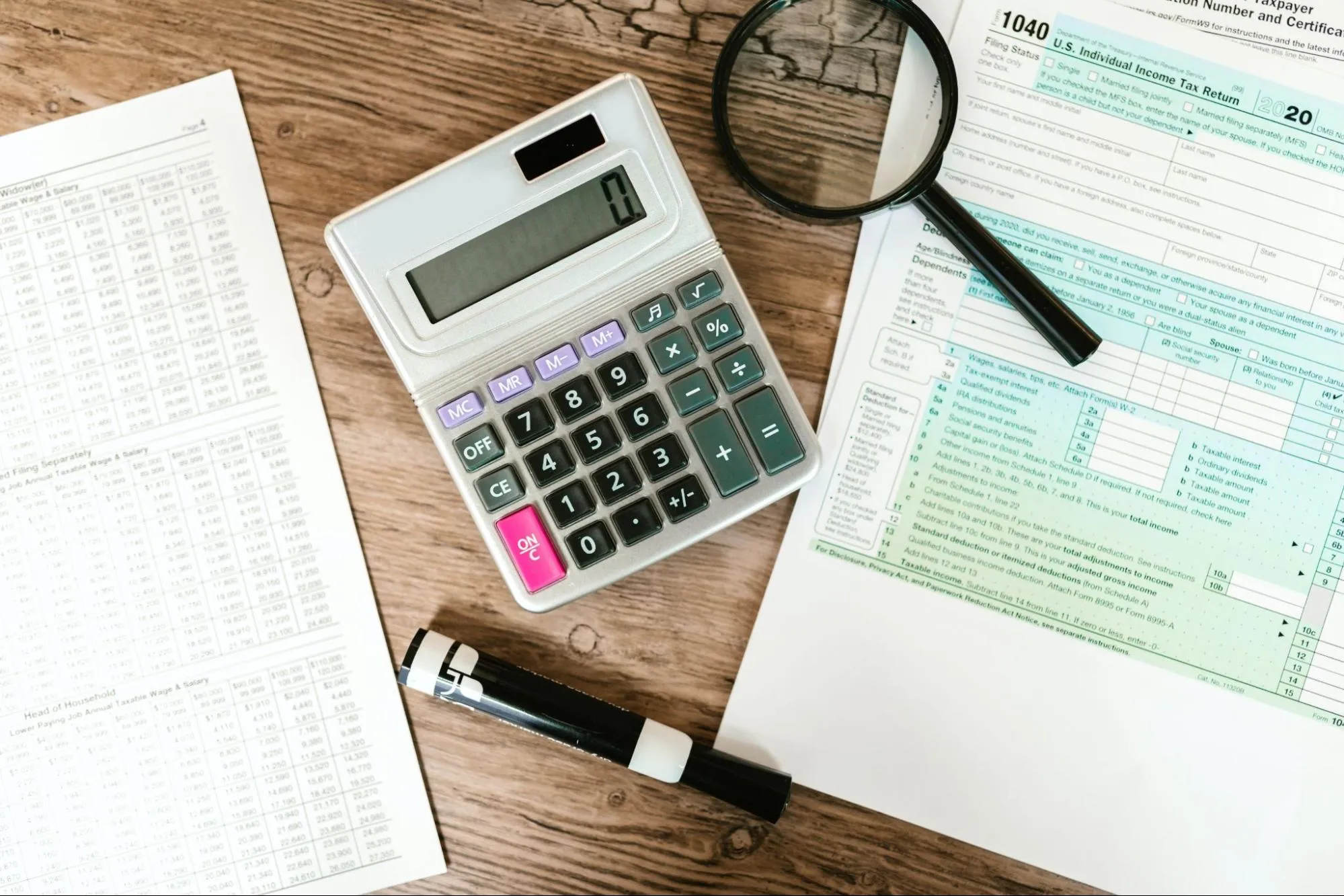Managing finances for real estate investments can quickly become complex. Tracking rental income, classifying expenses, handling security deposits, and preparing for tax season requires meticulous record-keeping. For real estate investors aiming to optimize profitability and streamline operations, relying on manual methods or generic tools often falls short.
This is where specialized real estate accounting software becomes essential. As investment portfolios grow, having a dedicated platform designed for the unique financial aspects of real estate simplifies tasks, improves accuracy, and provides crucial insights into performance. Choosing the right tool in 2025 can significantly impact an investor's efficiency and bottom line.
This guide explores what AI bookkeeping software is, why it's indispensable for investors, key features to look for, compares top platforms, discusses costs, and offers tips for making the best choice for your portfolio.
What is property management software, and why use it?
- Generic tools and spreadsheets can't keep up with property-specific accounting needs. Real estate software automates categorization, reconciliation, and tax prep with greater accuracy and speed.
- Top platforms offer Schedule E-ready reporting, expense tagging, and security deposit tracking. These features are vital for financial visibility, compliance, and decision-making.
- Automating financial tasks reduces manual entry, improves accuracy, and eliminates spreadsheet headaches. This leads to cleaner books, fewer mistakes, and simpler audits or tax filings.
- Smaller portfolios may do well with free tools like Stessa or Baselane. Cost, features, and scalability matter.
- Most software expenses can be written off under Schedule E as a business expense. Keeping proper records ensures compliance and helps recoup costs at tax time.
What is real estate accounting software
Real estate accounting software is a specific type of financial management tool built to handle the unique transactions and reporting needs of the real estate industry, including real estate investors, landlords, and property managers. Unlike general accounting software, it's tailored to track income from rent, manage property-specific expenses, handle security deposits, and generate reports relevant to property performance and tax filing.
This software often includes features like tracking income and expenses per property, automating bank reconciliation, managing leases, and providing tax-ready reports. For investors, this specialization means less manual effort in adapting generic tools and more focus on analyzing financial health.
Why use real estate accounting software
The benefits of using real estate accounting software for investors are substantial, particularly when compared to manual bookkeeping or spreadsheets.
- Automating tasks saves significant time. The software can automatically categorize transactions, match income to leases, and reconcile bank statements. This frees up valuable time that investors can reinvest in growth or other ventures.
- Accuracy is dramatically increased. Manual data entry is prone to errors, which can lead to incorrect financial reporting and potential issues during tax season. Software reduces these risks through automation and built-in checks.
- Access to real-time financial data provides clear visibility into property performance. Investors can instantly see income and expenses for individual properties or their entire portfolio, enabling data-driven decisions about investments.
- Simplified tax preparation is a major advantage. The software organizes financial data in a way that makes it easy to generate reports needed for tax filing, such as Schedule E forms. Some software even provides specific tax packages.
- Streamlined compliance is another key benefit. Keeping accurate records is crucial for legal and tax compliance, and dedicated software helps ensure all financial activities are properly documented.
- Enhanced security is also a factor. Compared to spreadsheets saved locally, cloud-based software often offers better security features and data backups.
- Finally, using accounting software for real estate provides valuable insights into cash flow, profitability, and key metrics, enabling investors to identify trends and make informed strategic decisions.
Manual vs spreadsheet vs software
Note: Availability marked with "*" indicates the feature is generally expected for a platform of its type based on industry standards and competitive landscape mentions in the research, but specific implementation details or confirmation within the provided source material were not explicitly available for every single point.
Integrated Banking refers specifically to built-in banking services, not just integration with external banks.
Key must-have features of real estate accounting software
For real estate investors, certain features are non-negotiable in accounting software. These features are designed to address the unique challenges of tracking property finances and preparing for taxes.
- Robust income and expense tracking is fundamental. The software should allow detailed categorization of transactions and, crucially, associate each entry with a specific property or unit. This enables investors to analyze profitability property-by-property.
- Automated bank and credit card integration and reconciliation are essential for saving time and ensuring accuracy. The software should securely connect to bank accounts, import transactions, and help match them to recorded income and expenses, simplifying the reconciliation process.
- Comprehensive reporting capabilities are vital. Investors need reports beyond basic income statements, such as Profit & Loss by property, cash flow statements, balance sheets, and ideally, reports tailored for tax purposes, like those supporting Schedule E.
- Tax preparation support is a key benefit. The software should organize income and expenses according to tax categories relevant to rental properties, making it easier to provide information to an accountant or file taxes directly. Support for tracking deductible expenses like rental property operating expenses, rental property expenses, and specific deductions like mortgage interest deduction on rental property is crucial.
- Handling security deposits correctly is another important feature. The software should track security deposits, which are typically liabilities, separate from income, and facilitate accounting for them on the balance sheet, including managing potential security deposit deductions and security deposits in the balance sheet.
- Other valuable features include receipt and document storage (digitizing records for easy access and audits), mileage tracking (for deductible travel), and the ability to distinguish between capital expenditures and standard repairs for accurate reporting and tax treatment. Some platforms may also integrate basic property management features like online rent collection, which can be convenient for self-managing investors. This is particularly useful for managing rental income, including potentially tracking income from short-term rentals like those related to Airbnb accounting and associated Airbnb expenses.
Comparison table of real estate accounting software
Here is a comparative table that shows the top real estate accounting software.
Note: Pricing is approximate and often scales significantly with the number of units or features required. Always check the provider's website for current pricing and details.
Real estate accounting software vs manual or spreadsheet
The choice between dedicated real estate business accounting software and manual methods or spreadsheets boils down to efficiency, accuracy, scalability, and insight.
- Manual methods are viable only for investors with perhaps one or two properties and minimal transactions. It becomes unsustainable quickly as complexity increases.
- Spreadsheets offer more structure but demand significant manual effort for data entry, categorization, and report generation. They lack automation, built-in checks for errors, and are not inherently designed for property-level tracking or specific real estate accounting principles (like handling liabilities such as security deposits).
- Dedicated software, on the other hand, automates core tasks like transaction import and categorization, applies real estate-specific logic (like tagging income by property), provides sophisticated reporting with a few clicks, and keeps all financial data organized for tax purposes. While there's an initial learning curve and often a recurring cost, the long-term benefits in terms of time saved, reduced errors, and clear financial visibility make software a superior choice for almost any active real estate investor.
5 Pros and cons of real estate accounting software
Pros:
- Automation & efficiency: Saves significant time by automating data entry, categorization, and reconciliation.
- Improved accuracy: Reduces manual errors inherent in spreadsheet or manual methods.
- Real-time financial visibility: Provides instant access to key metrics like cash flow and profitability per property.
- Simplified tax preparation: Organizes financial data in a tax-friendly format, often providing Schedule E reports.
- Better organization: Keeps all property-related financial records in one centralized, secure location.
Cons:
- Cost: Most robust platforms require a monthly or annual subscription fee.
- Learning curve: Requires time to set up correctly and learn how to use all features effectively.
- Potential overkill: For investors with only one very simple property, it might feel more complex than necessary initially.
- Integration issues: Ensure the software integrates with your bank accounts and other tools you use (if any).
- Feature overlap: Some platforms are full property management suites; investors only needing accounting might pay for features they don't use.
Tips to pick the right real estate accounting software
Selecting the accounting software real estate investors should use requires careful consideration. Here are some expert tips for choosing the right platform in 2025:
- Assess your needs: Start by listing your requirements. How many properties do you have? What types (residential, commercial)? Do you need integrated rent collection or just accounting? What is your budget?
- Consider your portfolio size & growth: Some software is priced per unit, making it more expensive as you scale. Choose a platform that offers scalable pricing and features that can accommodate future growth without requiring a switch later.
- Prioritize key features: Ensure the software excels at the non-negotiable features for investors: property-level tracking, bank integration, strong reporting (especially for taxes), and accurate handling of investor-specific transactions.
- Evaluate ease of use: A powerful system is useless if it's too complicated. Look for intuitive interfaces and clear workflows. Many providers offer free trials or demos – take advantage of these to test usability with your data if possible.
- Check reporting capabilities: Don't just see if reports exist; check if they provide the specific data views you need (e.g., year-over-year comparison, cash flow by property) and if they are easily exportable for your accountant.
- Support and resources: Understand what kind of customer support is available (email, phone, chat) and if there are helpful resources like knowledge bases, tutorials, or communities.
- Read reviews: Look for reviews from other real estate investors to understand real-world experiences with the software's features, reliability, and support.
- Look for tax-ready features: Specifically, check if the software helps categorize income and expenses according to IRS Schedule E requirements and if it can generate reports that simplify tax filing.
Real estate accounting software: Best for small, medium, or large portfolio investors?
The "best" software often depends heavily on the investor's portfolio size and complexity.
For small portfolio investors (1–5 units):
- Simpler, more cost-effective solutions are often sufficient.
- Free options like Stessa for residential or platforms with low starting tiers like Baselane or Landlord Studio can be excellent choices.
- They provide essential tracking and reporting without overwhelming features or costs.
For medium portfolio investors (5–25 units):
- Investors in this range often need more robust automation and reporting.
- Platforms like Landlord Studio, TenantCloud, or scalable options from Baselane become increasingly valuable.
- At this stage, time savings from automation justify moderate subscription costs.
For large portfolio investors (25+ units) or commercial investors:
- Comprehensive property management systems with integrated advanced accounting modules are typically required.
- Platforms like Buildium, AppFolio, Propertyware, or specialized commercial real estate accounting software are designed to handle the complexity of higher unit counts, multiple property types, trust accounting, and more sophisticated reporting needs.
- The investment in more expensive software is often necessary for the level of control and reporting required.
Average cost of real estate accounting software
The cost of real estate accounting software varies widely based on features, the number of units managed, and the provider. Pricing models are usually subscription-based (monthly or annually).
- Free options exist, such as Stessa and the core banking/accounting features offered by Baselane. These are typically sufficient for smaller, residential portfolios.
- Entry-level paid plans for dedicated accounting software for real estate or lighter property management tools often start between $10 and $50 per month for a limited number of units (e.g., 1–10 units).
- Mid-range plans for medium portfolios (e.g., 10–50 units) can range from $50 to $200+ per month, with costs escalating per unit.
- Comprehensive property management software suites suitable for large residential or commercial portfolios typically start at $200–$300+ per month and can quickly increase into the hundreds or thousands based on the number of units or properties.
- Factors influencing cost include the number of units, the inclusion of property management features (like rent collection, maintenance tracking), advanced accounting features (like trust accounting), and the level of customer support.
How to claim software costs back in real estate accounting software
As a real estate investor, the cost of accounting software for real estate is generally considered a deductible business expense.
- You can deduct the cost, whether it's a one-time purchase price or recurring subscription fees. These costs are typically reported on IRS Schedule E (Supplemental Income and Loss) under "Other Expenses" or potentially in the relevant section for business expenses if your real estate activity rises to the level of a trade or business, rather than just an investment.
Maintaining accurate records is crucial for claiming this deduction. Keep invoices or receipts for your software subscriptions. Using the software itself to track all your accounting for rental property income and expenses helps ensure you have a clear picture of your overall property business expenses for tax filing.
Conclusion
Choosing the best accounting software for real estate investors in 2025 is a critical step toward optimizing your real estate business. While manual methods or spreadsheets might seem appealing initially, they quickly become inefficient and error-prone as portfolios grow. Dedicated software provides the automation, accuracy, reporting capabilities, and tax preparation support essential for making informed decisions and maximizing profitability.
By understanding your specific needs, evaluating key features like property-specific tracking and tax reporting, considering your portfolio size, and comparing leading platforms, you can find the software that best fits your investment strategy and helps you achieve financial success. Investing in the right software is an investment in the efficiency, accuracy, and growth potential of your real estate ventures.
Baselane offers an integrated solution combining banking, rent collection, and bookkeeping specifically designed for landlords and real estate investors seeking to streamline their finances. Explore how Baselane can simplify your real estate accounting and financial management today.
FAQs
What is the main difference between general accounting software and real estate accounting software?
General software tracks business finances broadly; real estate software is specifically built for property income, expenses, and reporting like property-specific P&L and tax-ready formats.
Can I use free accounting software for real estate?
Yes, platforms like Stessa offer free accounting software for real estate businesses focused on residential properties, often suitable for smaller portfolios.
Is real estate accounting software a property management tool?
Some real estate accounting software includes basic property management features like rent collection, while others are purely focused on financials. Comprehensive property management software typically includes accounting as part of a larger suite.
Is Quicken or QuickBooks good for real estate accounting?
QuickBooks and Quicken can be adapted but lack built-in real estate-specific features and workflows, requiring more manual setup and customization compared to dedicated software.
How does real estate accounting software help with taxes?
It helps by organizing income and expenses by property and tax category, making it easier to generate reports needed for tax filing, such as Schedule E.














.jpg)
.jpg)
.jpg)
